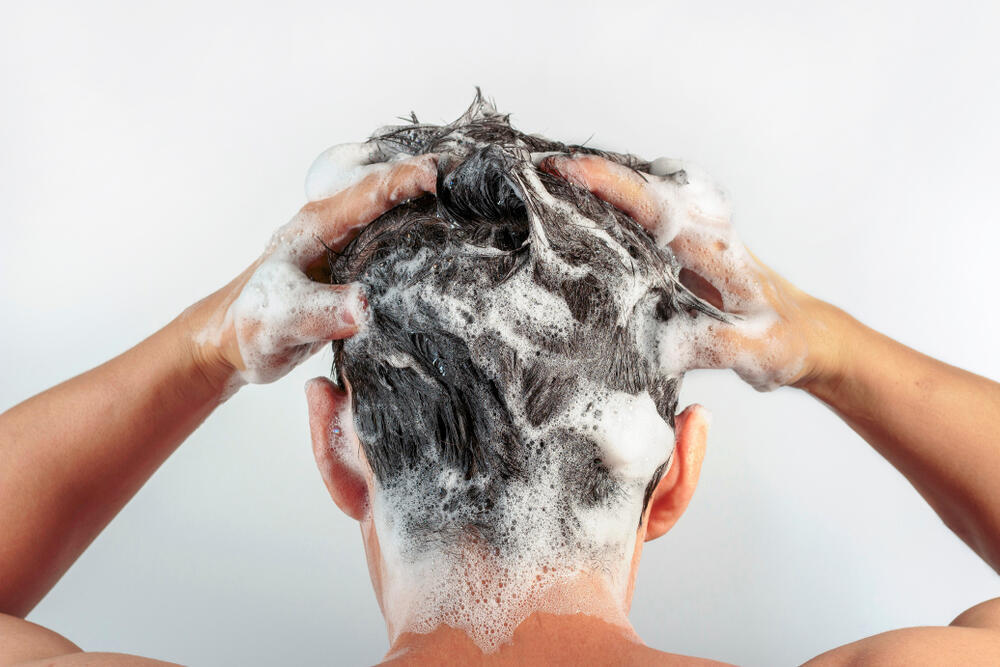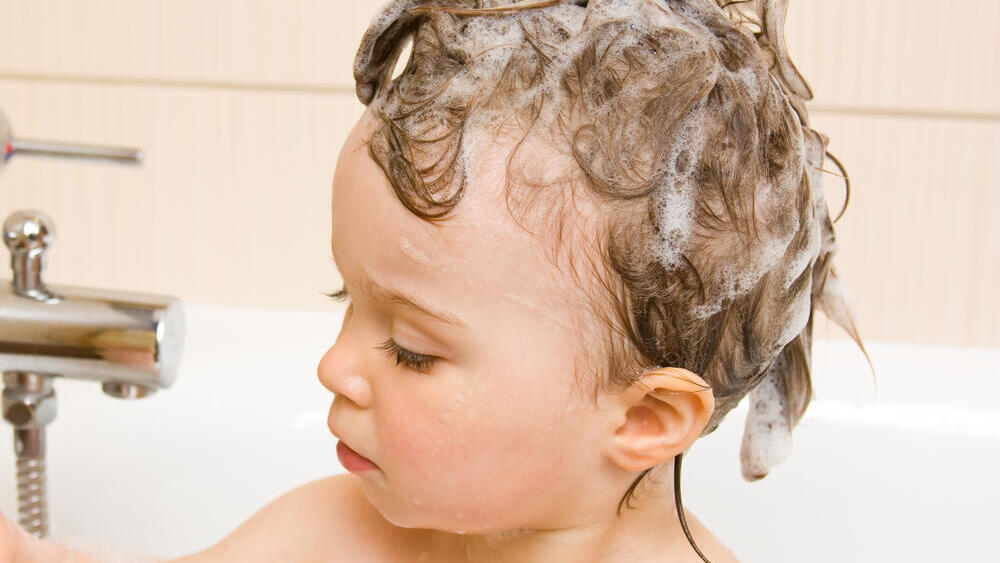Getting your Trinity Audio player ready...
How many times a week do you wash your hair? Are you a daily washer, or do you skip a few days? Could overwashing dry out your hair, or could under-washing lead to dandruff or hair loss? And what about shampoo alternatives like apple cider vinegar, conditioners or natural oils? Here’s what dermatology experts have to say.
Dr. Adi Sadia, a dermatologist at Soroka University Medical Center, begins by clarifying that shampoo is a necessary product, recommended for regular use. “Shampoo has both hydrophilic and hydrophobic effects,” Sadia explains. “Its purpose is to wash away the oils and dirt that accumulate on the scalp. The key point is frequency, which depends on various factors: hair type, skin type, scalp condition, age, health and more,” he says.
Is there such a thing as too much or too little shampooing?
“Definitely,” says Sadia. “Excessive washing can dry out the hair, making it more vulnerable and brittle, which in some cases can lead to hair loss. On the other hand, not washing the hair and scalp properly can lead to a buildup of dead skin and oil, potentially irritating the scalp and causing dandruff. In rarer cases, it can even result in inflammation with symptoms like redness, scabs and hair weakness.”
Dr. Michal Ramon, a senior dermatologist at Rambam Health Care Campus, adds: “Overwashing removes the natural oils from the scalp and hair, making the hair dry and brittle while irritating the scalp. To compensate for dryness, the scalp produces more sebum (oil), resulting in a ‘vicious cycle’ of frequent washing and increased oil production.”
How does hair type affect washing frequency?
“People with oily, thick, or dense hair should wash and rinse more frequently," Sadia explains. "Seasonal factors also play a role; for instance, in the summer, when there’s more oil production, it’s recommended to wash hair more often – ideally daily or at least three times a week. People with dry, curly or fine hair can shampoo less frequently, such as once or twice a week, or even biweekly, depending on the hair type.”
Ramon adds that “washing frequency depends on hair type, scalp condition, lifestyle and personal preference. Those with oily hair and scalp might need more frequent washes to manage oiliness and reduce dandruff, which often involves flaking and itchiness. For people with dry or curly hair, washing once or twice a week is enough, as their hair tends to be drier.”
 Dr. Adi Sadia
Dr. Adi SadiaDoes age affect hair-washing needs?
“Age is also a factor,” Sadia notes. “As people age, the scalp tends to produce less oil, so hair may not need as frequent washing. Hair also becomes weaker, thinner and finer over time, so washing less often is recommended.”
Ramon adds that washing children’s hair should be done gently. Babies typically only need washing once or twice a week since their scalp doesn’t produce oil and their hair is delicate. For young children, washing frequency depends on their activities, as they often get dirty from playing and eating.
“It’s also advised to use tear-free shampoo for children,” says Ramon, “a gentle shampoo that won’t irritate the skin. Use a small amount to clean the scalp and hair, and make sure to rinse thoroughly to avoid any residue that could cause irritation.”
How to choose the right shampoo for your hair
Experts recommend selecting shampoo based on your hair type, scalp condition, and any specific needs, such as inflammatory skin conditions or treated hair. “For example, sulfate-free shampoo is ideal for delicate or dry hair or after straightening treatments, as it doesn’t contain oil-dissolving agents like sulfates,” Ramon advises.
 Dr. Michal Ramon
Dr. Michal RamonSadia adds: “For those prone to dandruff, it’s best to use an anti-dandruff shampoo, depending on hair type and genetics. People with dry hair should look for shampoos with added oils to help moisturize.”
In general, choose shampoo and conditioner suited to your hair type and needs. Some shampoos can remove styling product buildup, but frequent use may dry out the hair. Shampoos for dry or damaged hair can help restore moisture but might not suit oily scalps.
Apply shampoo close to the scalp and roots to remove dead skin and excess oil, then rinse thoroughly.
What about conditioner?
“Conditioner has less of an oil-removing effect and less cleansing power; its job is to hydrate and refresh the hair,” Sadia says. “Conditioners are chemical products that shouldn’t be overused as they may have an adverse effect on the hair. It’s fine to use conditioner after shampooing, but it’s best to dry the hair lightly before applying conditioner to damp hair.”
Ramon adds that conditioner is designed to hydrate, smooth and coat the hair, leaving it soft and manageable. Conditioners often contain oils, silicones and proteins to protect the hair shaft. “After shampooing, leave conditioner in for two to three minutes before rinsing,” she advises.
Use conditioner to help with moisture and detangling. People with thin or straight hair should apply it only to the ends, while those with dry or curly hair can apply it along the entire length. Gently towel-dry hair after conditioning, and if using a blow dryer, set it to low or medium heat to prevent damage. Avoid combing wet hair, as it’s more prone to breakage; use a wide-toothed comb to detangle.
“For those with seborrheic dermatitis, it’s best to use a gentle shampoo frequently to manage oiliness but avoid overwashing,” Ramon notes.
“Hair washing is individual,” Sadia concludes. “Each person should adjust their washing frequency based on their scalp’s oiliness and the season. The goal is to avoid excessive oil buildup on the scalp and hair while not washing so much that it leads to dryness and weakened hair.”
Get the Ynetnews app on your smartphone:
First published: 03:11, 11.06.24



